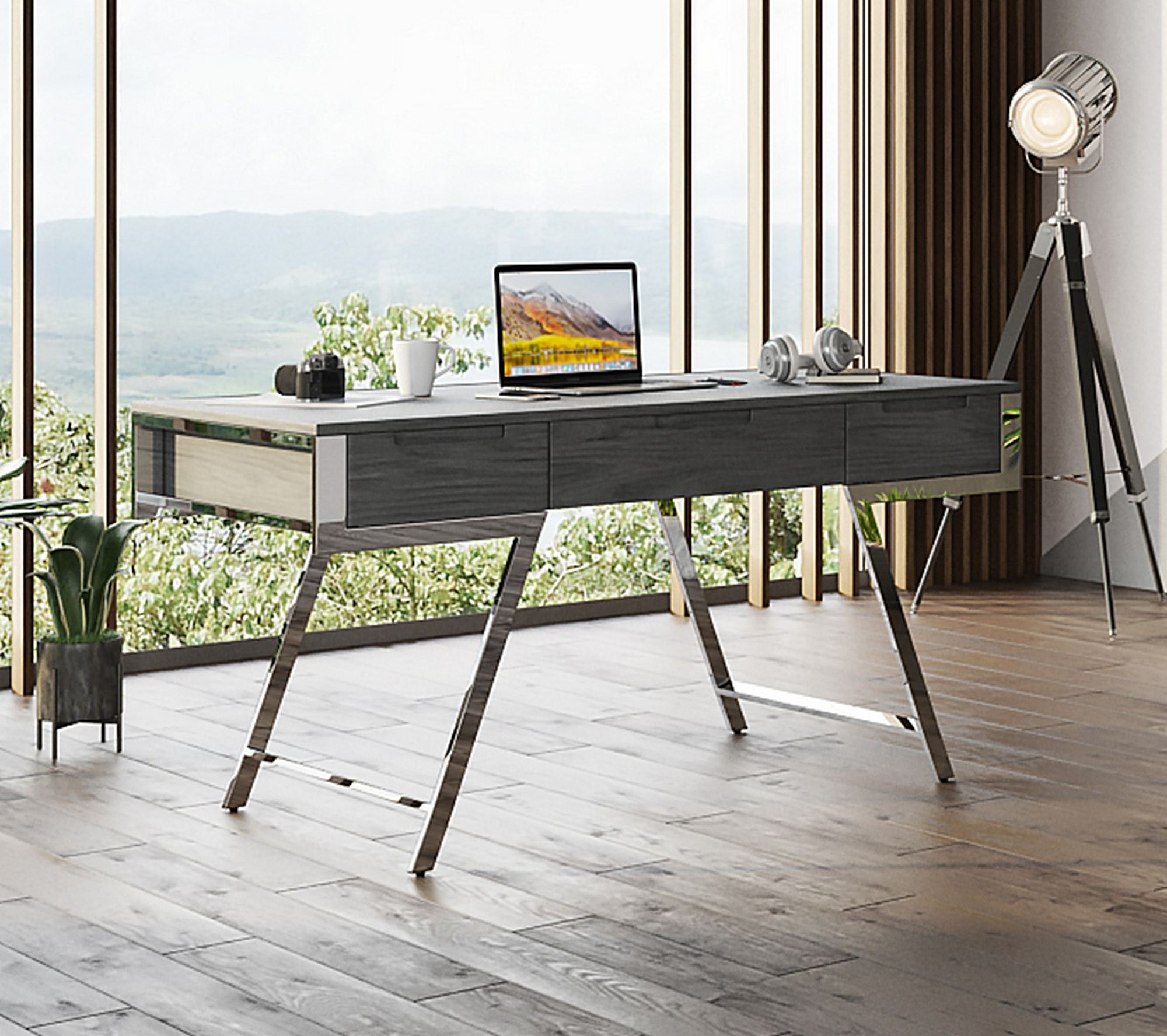Office furniture plays a vital role in any work environment, delivering utility while influencing the overall aesthetics, comfort, and productivity of employees. From desks and chairs to filing cabinets and conference tables, choosing the right office furniture can have a significant impact on both worker health and the smoothness of everyday work.
 Desks form the core of employees' work areas. Whether within open-office layouts or individual cubicles, how desks are designed and function affects output. Standing desks with adjustable heights are increasingly popular, since they allow flexibility, enabling staff to alternate between sitting and standing, which can improve focus and reduce fatigue. Corner and L-shaped desks provide extra workspace, suited for multitasking or using several monitors or who need space for paperwork and equipment.
Desks form the core of employees' work areas. Whether within open-office layouts or individual cubicles, how desks are designed and function affects output. Standing desks with adjustable heights are increasingly popular, since they allow flexibility, enabling staff to alternate between sitting and standing, which can improve focus and reduce fatigue. Corner and L-shaped desks provide extra workspace, suited for multitasking or using several monitors or who need space for paperwork and equipment.
A vital piece of office furniture is the chair. Chairs with ergonomic design are crucial for preventing discomfort and long-term health issues, including discomfort in the neck and spine. Adjustable height, lumbar support, and breathable materials are key in ensuring comfort when sitting for long durations. Executive chairs come with additional padding and enhanced features for managers, while task chairs are more standard for general use.
Proper storage is essential to keep the office organized and clutter-free. File cabinets, shelving, and mobile storage systems aid in storing paperwork, office tools, and personal effects. In contemporary workplaces, modular storage systems provide flexibility, allowing businesses to configure storage units based on their evolving needs.
Workplace furniture isnt limited to personal desks. Meeting tables, seating for boardrooms, and shared workstations are vital for teamwork and communication. Selecting modern, comfortable, and spacious furniture for meetings can create a more professional and welcoming atmosphere, fostering creativity and active participation.
Office furniture design contributes to the reflection of a companys identity and culture. Sleek, modern furniture gives a contemporary feel, while heavier, wood-centric furniture implies stability and formality. Moreover, color schemes and material choices can impact mood and productivity, with light hues encouraging calm and darker shades projecting authority.
Workplace furniture goes beyond mere function; it is essential to creating comfort, Desk efficiency, and productivity. Choosing ergonomic, flexible, and stylish furnishings can greatly improve the office atmosphere, leading to a more satisfied and productive workforce.
 Desks form the core of employees' work areas. Whether within open-office layouts or individual cubicles, how desks are designed and function affects output. Standing desks with adjustable heights are increasingly popular, since they allow flexibility, enabling staff to alternate between sitting and standing, which can improve focus and reduce fatigue. Corner and L-shaped desks provide extra workspace, suited for multitasking or using several monitors or who need space for paperwork and equipment.
Desks form the core of employees' work areas. Whether within open-office layouts or individual cubicles, how desks are designed and function affects output. Standing desks with adjustable heights are increasingly popular, since they allow flexibility, enabling staff to alternate between sitting and standing, which can improve focus and reduce fatigue. Corner and L-shaped desks provide extra workspace, suited for multitasking or using several monitors or who need space for paperwork and equipment.A vital piece of office furniture is the chair. Chairs with ergonomic design are crucial for preventing discomfort and long-term health issues, including discomfort in the neck and spine. Adjustable height, lumbar support, and breathable materials are key in ensuring comfort when sitting for long durations. Executive chairs come with additional padding and enhanced features for managers, while task chairs are more standard for general use.
Proper storage is essential to keep the office organized and clutter-free. File cabinets, shelving, and mobile storage systems aid in storing paperwork, office tools, and personal effects. In contemporary workplaces, modular storage systems provide flexibility, allowing businesses to configure storage units based on their evolving needs.
Workplace furniture isnt limited to personal desks. Meeting tables, seating for boardrooms, and shared workstations are vital for teamwork and communication. Selecting modern, comfortable, and spacious furniture for meetings can create a more professional and welcoming atmosphere, fostering creativity and active participation.
Office furniture design contributes to the reflection of a companys identity and culture. Sleek, modern furniture gives a contemporary feel, while heavier, wood-centric furniture implies stability and formality. Moreover, color schemes and material choices can impact mood and productivity, with light hues encouraging calm and darker shades projecting authority.
Workplace furniture goes beyond mere function; it is essential to creating comfort, Desk efficiency, and productivity. Choosing ergonomic, flexible, and stylish furnishings can greatly improve the office atmosphere, leading to a more satisfied and productive workforce.